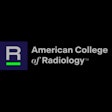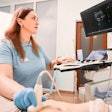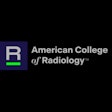The American College of Radiology (ACR) Harvey L. Neiman Health Policy Institute has released a policy brief that outlines payment models it believes can be sustainable and provide cost-effective access to medical imaging and other specialty services.
"Beyond Fee-For-Service: Emerging Payment Models in Radiology" emphasizes that the imperative of shared savings programs such as accountable care organizations -- which incentivize providers to curb costs by making them assume greater financial risk for a patient's care -- doesn't have to reduce access to specialty care, according to the institute. In fact, these new payment models can align provision and payment of specialty care with efforts to ensure a sustainable high-quality healthcare system.
"One of the potential harms of making providers responsible financially for the totality of a patient's care is that it can create incentives to withhold services in order to maximize profits," said Neiman Institute CEO Dr. Richard Duszak in a statement. "This undermines the primary goal of health reform, to provide better care and improve outcomes in order to contain costs through enhanced long-term health and wellness."
The brief focuses on new payment models for inpatient care and also episodic care such as screening mammograms. Using "big data" and what is known about care patterns can allow for payment models that utilize imaging and various specialty care services for the right patients at the right time in a cost-effective manner, Duszak said.



















